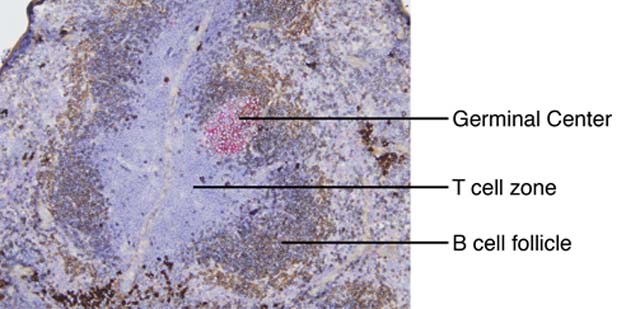|
Innate immune signaling is important not only in initiating defense against various pathogens but also in promoting adaptive immune response. Toll-like receptor (TLR) signaling promotes antibody response through multiple mechanisms. Our previous work discovered that the physical form of antigens determines how B cell TLR signaling contributes to antibody response. While the antibody response to soluble protein antigen mixed with TLR ligands does not depend on B cell TLR signaling, the response to virus-like particle (VLP) containing TLR7 or TLR9 ligands strongly depends on B cell intrinsic TLR signaling. Moreover, it seems that the B cell TLR signaling could promote a strong germinal center (GC) response, but the mechanisms are unclear yet. We are studying how B cell TLR signaling is involved in GC response, and whether it also plays a role in the formation of long-lived plasma cells and memory B cells, the main components for humoral memory.

Fig1. Section from a mouse spleen. B cells were stained brown, and germinal center was stained pink. Blue counter-staining shows T cell zone

Fig2. Diagram of a virus like particle (VLP). VLP exhibits repetitive surface epitopes. Some VLPs can also be loaded with different types of TLR ligands inside the particle |